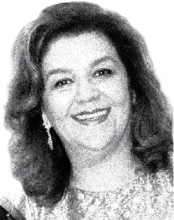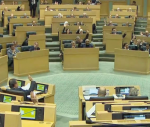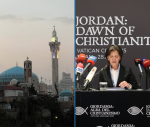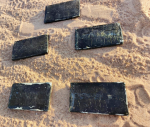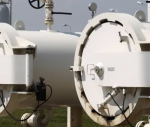You are here
Perfecting the ‘process’, but hedging with the ‘objective’
Aug 26,2017 - Last updated at Aug 26,2017
Elections have a way of reorganising one’s thoughts on political realities. Each result highlights a fact, a marker for change or a new reality that perhaps we, as a nation, had not monitored as closely in the time between elections.
Interestingly in Jordan, the three elections we witnessed over the last year provided “updates” at national and community levels, which collectively allow us to pinpoint key indicators by which to measure the pace of the “democratisation process”.
A respected observer of the municipal and decentralisation elections in Jordan said two weeks ago that the government had carried out the most “free and transparent” elections since 1989 — a key benchmark for free, fair and transparent elections in Jordan — but he added that although the candidates and their supporters may have claimed in their campaigns that they sought “nazeeha” or honest elections, they behaved otherwise in order to win.
And this might well be true if the measure of the government’s integrity is the process of elections on the day.
By most observer accounts, tampering with the voting process happened at community level and within tribal and familial contexts.
It sometimes involved the elections committee in that district, but only to respond to those tribal and familial considerations, and not in response to orders from the government.
The Independent Elections Commission, the Ministry of Political Affairs and the Ministry of the Interior collaborated to ensure a free and transparent elections process.
Interestingly, and largely unobserved, these last municipal and decentralisation elections provided for an element of fairness and equality that largely went unreported — although I suspect those in the know will focus on this element and consider its implications quite closely.
In key cities with geographically mainstreamed Palestinian refugee camps — such as Irbid, for example — the camp residents carrying Jordanian passports were allowed for the first time to run for and elect municipal representatives.
Historically, camp residents were not part of the municipal elections and an appointed camp elders committee was tasked with the duty of representing their “municipal” affairs. This practice does continue in geographically contained Palestinian refugee camps, like Baqaa, for example, but has been relaxed in some of the major cities where the camp has become part of the city without defined geographic border.
Their “integration” introduced new calculations into the vote planning and increased the heat and level of participation in those areas.
At decentralisation elections level, all Jordanians — including refugee camp residents — were able to run for and vote for their representatives.
Coupled with the opening up of the municipal elections as mentioned earlier, Jordan can be said to be taking a tentative step towards integrating — and I use this word very loosely, since obviously there is yet to be a study of the motives and implications of these first steps — and recognising the rights of Jordanian citizens of Palestinian origin.
I expect that this development will be seen as a sound step towards addressing the “fair” element, which until now has been missing in Jordanian elections. But it may also have larger and far-reaching political implications.
Tribal and familial affiliations trumped political and ideological membership.
Of course, there is a large number of elected Islamist municipal and decentralisation officials, but the majority of those owes a huge debt to the tribes and families who supported them into those positions.
This formula highlights the inability of even the “most organised” political parties to pull together an impressive win without employing the traditional tools to bolster their status.
Areas where large population pockets are restricted from achieving equal and fair representation — as per the political intention and design of the law — such as in Zarqa and Amman — either cast protest votes or boycotted the elections altogether.
The election of Islamist Ali Abul Sukkar in Zarqa is a case in point for the former and the low participation levels in Amman and Zarqa are testament to the latter.
Almost 30 years on from 1989, the beginning of what was then termed realistically “democratisation process”, we are still in hesitant and politically vacant transition.
Elections — whether national or community based — held regularly and routinely over the past three decades do not appear to be bringing us any closer towards achieving a democracy based on fair, free and equal representation, nor are they allowing a viable political ideology or programme to find firm ground with support from well-informed politically savvy constituencies.
In fact, it appears as if the government is testing, measuring and redesigning in order to avoid that objective.
Glimmers of hope in every election are quickly snubbed and snuffed out in a redesign of the law that targets that window of opportunity for forward movement.
Our observer of the elections was accurate in noting that the “process” was untarnished, but we seem to have lost the compass towards the “objective”.

